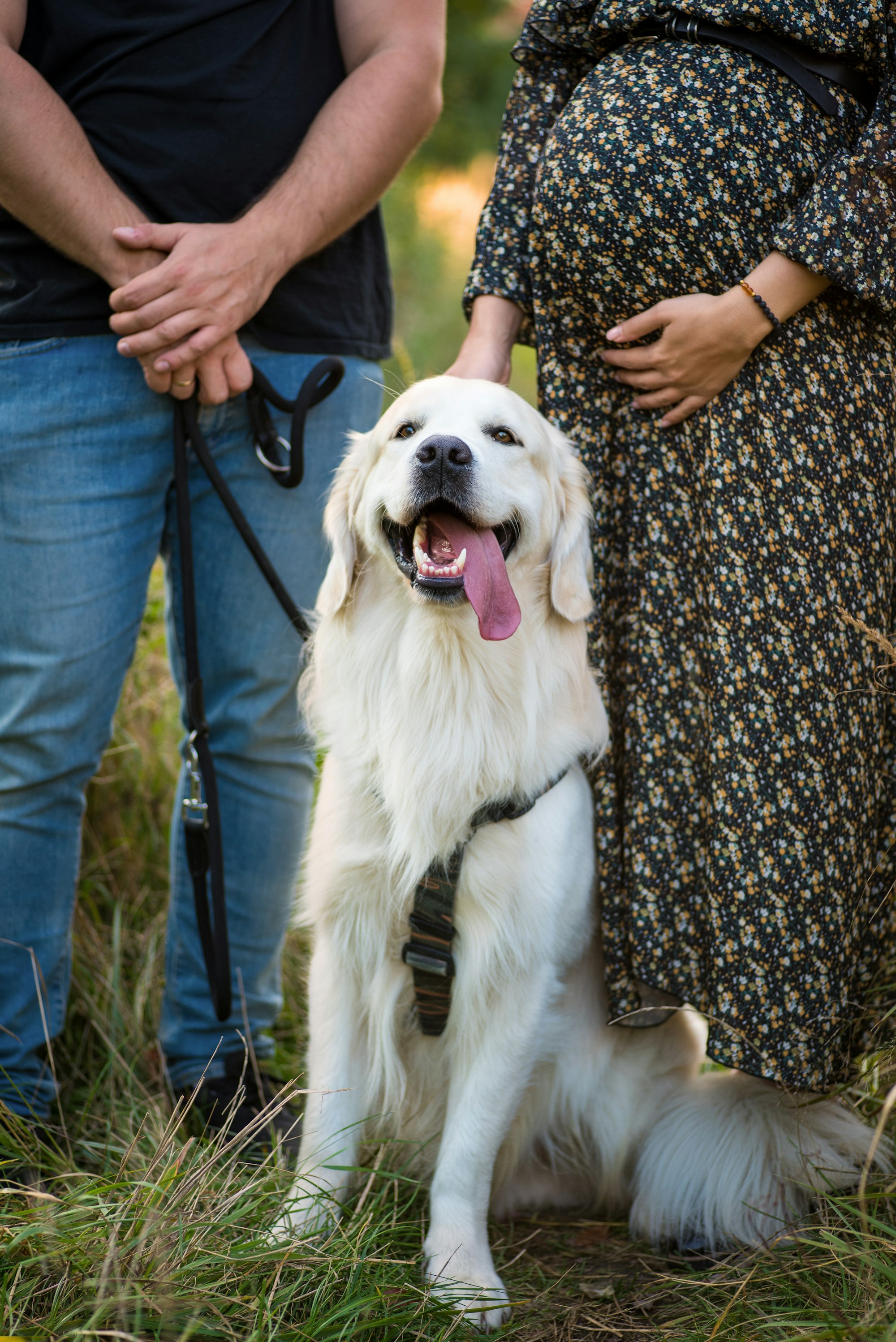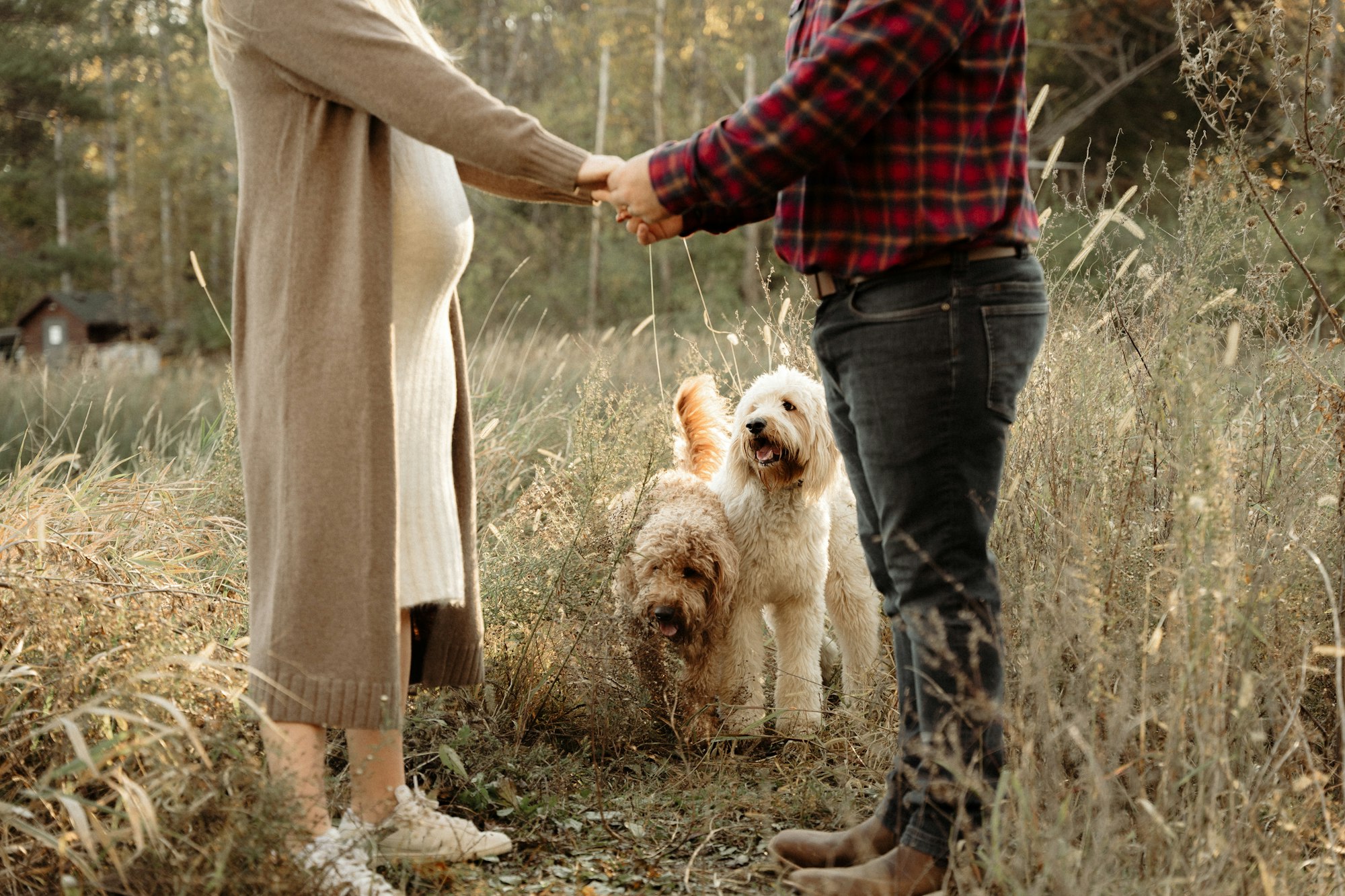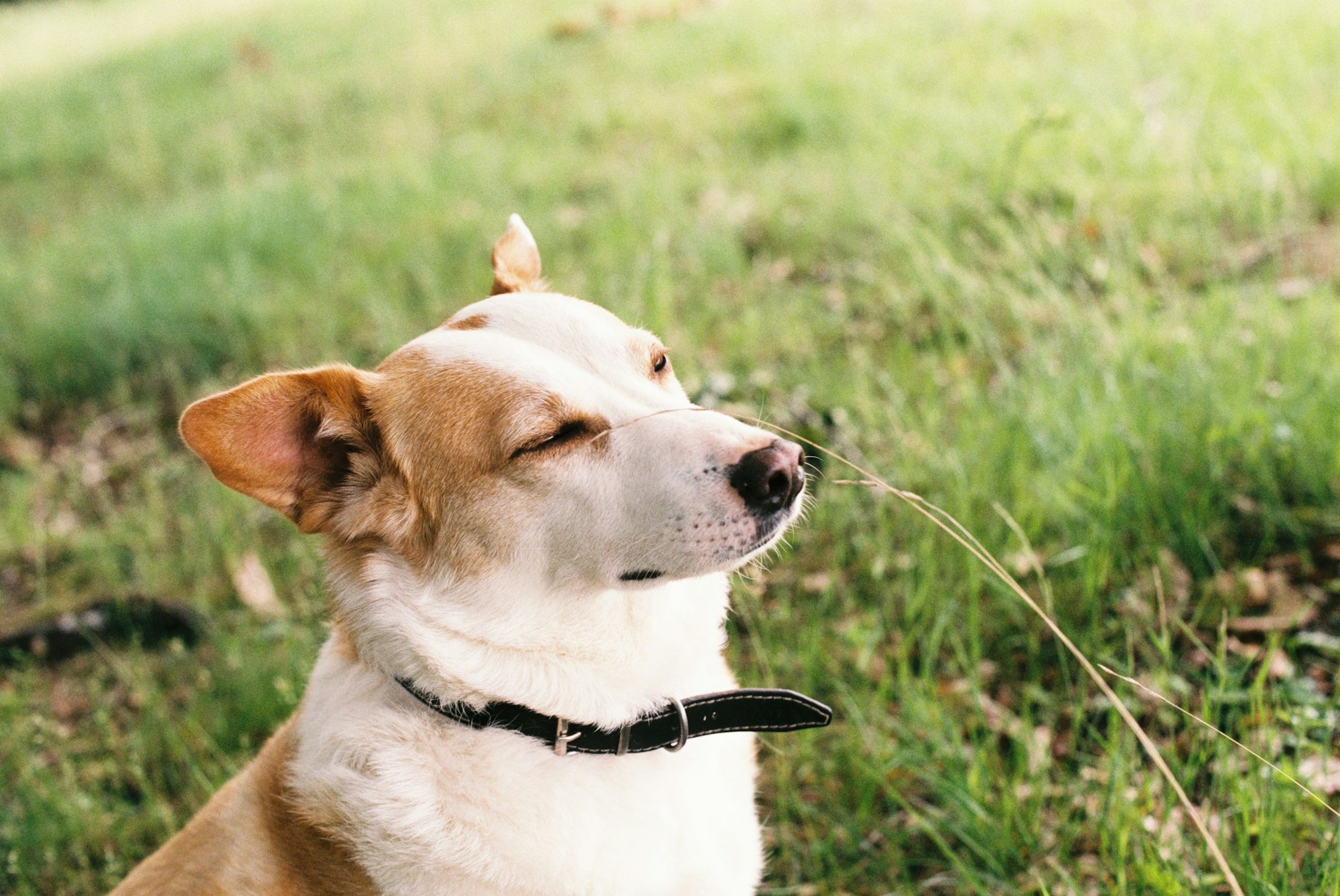Welcoming a new addition to your family is an exciting journey, and it often begins with subtle changes that go unnoticed by most, but not by your loyal furry friend. Dogs are known for their remarkable senses, and many pet owners wonder if their canine companions can detect pregnancy. In this article, we'll explore the signs that suggest your dog may indeed know that you're expecting a baby.

Can Dogs Really Sense Pregnancy?
Dogs possess an extraordinary sense of smell, which allows them to perceive scents and detect changes in the environment that are imperceptible to humans. This heightened olfactory ability plays a significant role in their ability to sense pregnancy.
Understanding Canine Behavior
To understand whether your dog knows you're pregnant, it's crucial to pay close attention to changes in their behavior, reactions, and body language. Dogs communicate primarily through non-verbal cues, making it essential to decode their signals.
Signs Your Dog May Know You're Pregnant
One of the intriguing aspects of the relationship between dogs and pregnancy is the heightened sensitivity that dogs often exhibit. Dogs have a remarkable ability to pick up on subtle changes in their environment, including changes in the people they are closest to.
During pregnancy, many dogs become more attuned to their owners, particularly the expectant mother. They seem to sense changes happening within her body and emotions, leading to specific behaviors that may indicate their awareness of the pregnancy.
Changes in Behavior
Keep a close eye on your dog's behavior as your pregnancy progresses. While each dog is unique, there are some common changes that might suggest your dog knows you're pregnant. These changes can include:
- Increased attentiveness: Your dog may become more attentive, following you around the house more closely than before.
- Protective instincts: Some dogs develop protective instincts towards their pregnant owners. They might position themselves between you and potential perceived threats, even if those threats are not real.
- Curiosity towards your abdomen: Dogs have an incredible sense of smell, and they may show interest in your abdomen area. They might sniff or nuzzle your belly, seemingly aware of something different.
- Unusual gentleness: Dogs that are typically boisterous or energetic may exhibit a more gentle demeanor during pregnancy, as if they understand the need for care and caution.
These changes can be subtle, so it's important to pay attention to your dog's behavior and look for any deviations from their usual patterns.
Increased Affection
One heartwarming sign that your dog may know you're pregnant is an increase in affection. Many pregnant women report that their dogs become more loving and cuddly during this time. It's as if the dog senses the need for emotional support and responds with extra affection and attention.
This increased affection can provide comfort and reassurance during the often physically and emotionally challenging journey of pregnancy. Dogs have a unique way of offering companionship and unconditional love, making them valuable members of the family during this special time.
In summary, the signs that your happy dog may know you're pregnant are characterized by heightened sensitivity, changes in behavior, and increased affection. While dogs may not fully comprehend the concept of pregnancy as humans do, their remarkable ability to sense changes within their environment and their deep emotional connection with their owners often lead to these heartwarming displays of awareness and support.
How Do Dogs Detect Pregnancy?
One of the primary ways dogs detect pregnancy is through their remarkable sense of smell. As your body undergoes hormonal changes, you emit different scents that are subtle but noticeable to your dog.
Hormonal Changes
Pregnancy leads to significant hormonal fluctuations in the body, and dogs are sensitive to these changes. They can detect the hormonal shifts through scent and body language.
Body Language
Dogs are excellent at reading body language. As your posture and movements change during pregnancy, your dog may pick up on these subtle cues, reinforcing their awareness of your condition.

Enhance Your Journey with Fi
As you navigate the exciting path of pregnancy, let your loyal canine companion be part of the experience with the help of the Fi Dog Collar. With its advanced tracking and geofence capabilities, you can ensure your dog’s safety and keep them close as you both adapt to the changes ahead. The Fi app allows you to monitor your dog’s activity and ensure they remain by your side, providing comfort and protection as your family grows.
Trust Fi to enhance the bond with your dog during this special time and beyond. Visit TryFi.com today to discover more about how the Fi Dog Collar can support you and your furry friend through the journey of pregnancy and into new parenthood.
The Emotional Connection Between Dogs and Pregnancy
The emotional bond between dogs and pregnancy is a unique and cherished aspect of canine-human relationships. Expectant mothers often find solace in the constant companionship and unconditional love that their dogs provide during this transformative time.
As the pregnancy progresses, dogs may adjust their behavior to accommodate their pregnant owners. They might become more nurturing, staying close and offering comfort through their presence. Many pregnant women report that their dogs seem to understand their need for extra support, and they respond with heightened affection.
Reducing Stress and Anxiety
Pregnancy can bring about various stressors and anxieties, but the calming influence of a dog can mitigate these emotional challenges. The simple act of petting a dog releases oxytocin, a hormone associated with bonding and relaxation, which can help reduce stress levels.
Furthermore, the daily routine of walking or playing with your dog can provide a much-needed break from the demands of pregnancy, offering moments of joy and distraction. This physical activity benefits both the expectant mother and her canine companion.
Should You Share the News with Your Dog?
Deciding whether to inform your dog about the pregnancy is a personal choice. However, it's essential to prepare your dog gradually for the changes that lie ahead through training and positive reinforcement.
Consulting a Veterinarian
Before making any significant changes in your dog's routine, it's advisable to consult with your veterinarian. They can offer guidance on ensuring your dog's well-being during your pregnancy.
The Importance of Your Dog's Well-being
During pregnancy, it's easy to become preoccupied with your own health and well-being, but it's equally important to prioritize the well-being of your canine companion. Maintaining a proper diet and exercise routine for your dog is essential throughout this period.
Ensure that your dog continues to receive the nutrition they need to stay healthy and active. Consult with your veterinarian to make any necessary adjustments to dog food based on their age, breed, and individual needs. Adequate exercise is also crucial, as it helps manage their energy levels and promotes overall well-being.
Regular walks, playtime, and mental stimulation are essential for your dog's physical and mental health. Engaging in these activities not only keeps them physically fit but also helps prevent behavioral issues that can arise from boredom or anxiety.
Managing Stress
Pregnancy can be a time of increased stress and emotional fluctuations, both for you and your dog. Changes in the household, routine, and the anticipation of a new family member can affect your dog's stress levels.
It's essential to monitor your dog for signs of stress or anxiety, such as excessive barking, pacing, or changes in appetite. If you notice any of these signs, consider implementing stress-reduction techniques, such as providing a quiet and safe space for your dog to retreat to when needed.
Additionally, maintaining a consistent routine and offering plenty of positive reinforcement can help alleviate stress and reassure your dog during this period of change.
In conclusion, while focusing on your own well-being and preparing for the arrival of your baby, it's vital not to overlook the importance of your dog's well-being. By ensuring they receive proper nutrition, exercise, and emotional support, you can help them navigate this transition smoothly and maintain a happy and healthy life as an integral part of your growing family.
Common Misconceptions About Dogs and Pregnancy
One prevalent misconception is that all dogs will experience separation anxiety when their owners become pregnant. While it's true that some dogs may become more attached or anxious during this time, it's not a universal response. Dogs, like humans, have unique personalities, and their reactions to pregnancy can vary significantly.
Understanding your dog's individual needs and behavior is essential. Some dogs may need extra reassurance and gradual adjustments to the changing household dynamics, while others may not exhibit any significant changes in their behavior. It's important not to assume that all dogs will react the same way and to tailor your approach accordingly.
Aggressive Behavior
Another common misconception is that dogs may become aggressive towards pregnant women. This misconception likely arises from stories or anecdotes, but it's essential to understand that aggression in dogs is typically a result of specific triggers or underlying issues, rather than a reaction to pregnancy.
If your dog displays aggressive behavior during your pregnancy, it's crucial to seek professional guidance from a veterinarian or a certified dog trainer. They can help identify the root causes of aggression and provide appropriate training and behavior modification strategies to address the issue safely and effectively.
In summary, while it's essential to be aware of potential changes in your dog's behavior during pregnancy, it's equally important not to fall prey to common misconceptions. Each dog is unique, and their responses to pregnancy will vary. By understanding your dog's needs and seeking professional assistance when necessary, you can ensure a harmonious environment for both your dog and your growing family.
Preparing Your Dog for the Arrival of Your Baby
Make gradual adjustments to your dog's routine and living space to help them acclimate to the arrival of your baby. This includes introducing baby items, suh as cribs and baby clothes to reduce anxiety and curiosity when the baby arrives. Also It will help you creating a safe environment.
FAQs
Can all dogs sense pregnancy?
While many dogs can sense pregnancy, the extent to which they react varies from dog to dog.
How early can a dog sense pregnancy?
Dogs can often detect pregnancy in the early stages, even before a human might realize it.
What should I do if my dog shows aggressive behavior during pregnancy?
Consult a professional dog trainer or behaviorist to address the underlying causes of aggression.
Is it safe to have a dog around a newborn baby?
With proper preparation and supervision, it is generally safe to have a dog around a newborn.
Can a dog predict the gender of the baby?
There is no scientific evidence to support the idea that dogs can predict the gender of a baby.

Conclusion
In the remarkable journey of pregnancy, your loyal canine companion can be a source of comfort and support. While dogs may not fully understand the concept of pregnancy, they undoubtedly sense the changes happening within you. Embrace their presence and make necessary adjustments to ensure a smooth transition when your baby arrives.
5 Unique FAQs
- Q1: Should I change my dog's diet during pregnancy?
- It's advisable to consult with your veterinarian about any necessary dietary changes for your dog during your pregnancy. They can provide guidance on nutrition and portion sizes.
- Q2: What if my dog becomes overly protective during pregnancy?
- While some protective behavior is normal, excessive protectiveness can be addressed through training and socialization. Seek assistance from a professional dog trainer if needed.
- Q3: Can dogs sense miscarriages or complications during pregnancy?
- Some anecdotal evidence suggests that dogs may react differently when there are complications, but this is not a reliable diagnostic tool. Always consult your healthcare provider for medical concerns.
- Q4: Will my dog's behavior change after the baby is born?
- Your dog's behavior may change as they adjust to the new family dynamic. Gradual introductions and positive reinforcement can help ease this transition.
- Q5: Can dogs help with postpartum depression?
- Dogs can offer emotional support and companionship, which can be beneficial for managing postpartum depression. However, it's essential to seek professional help if you experience severe symptoms.

